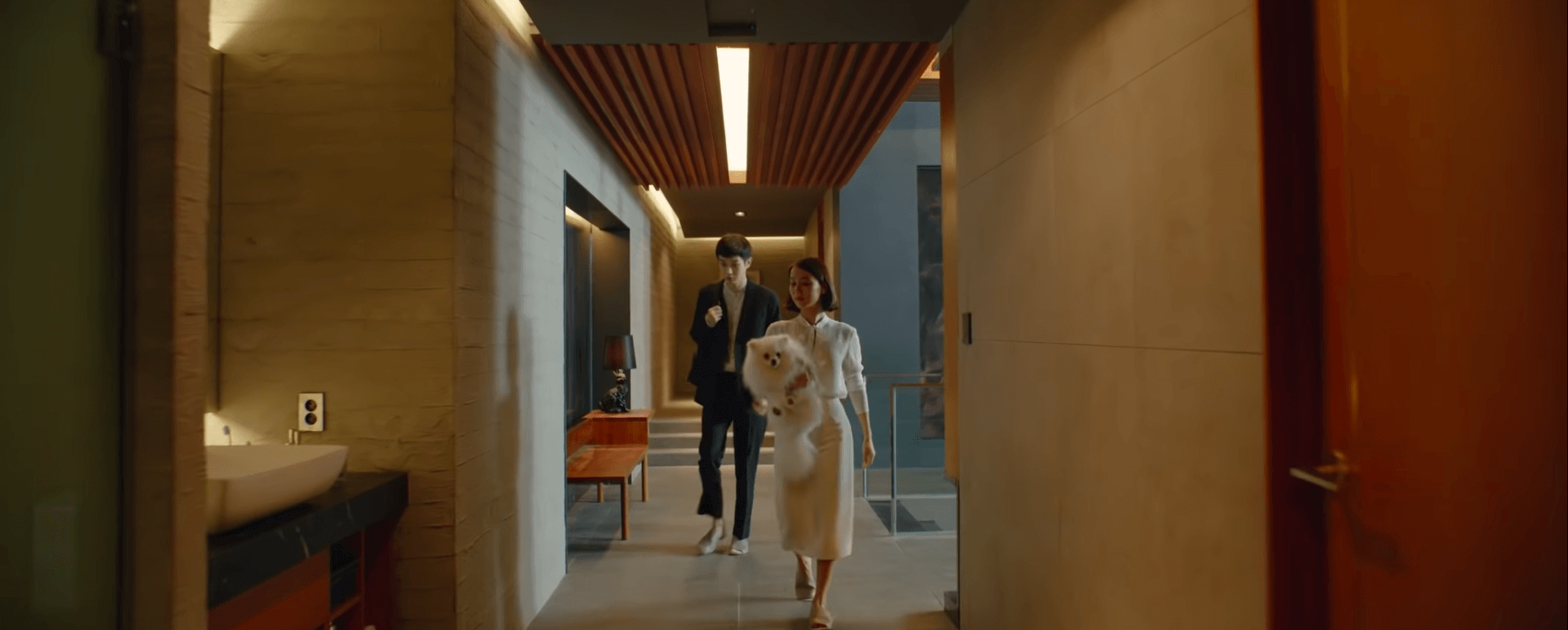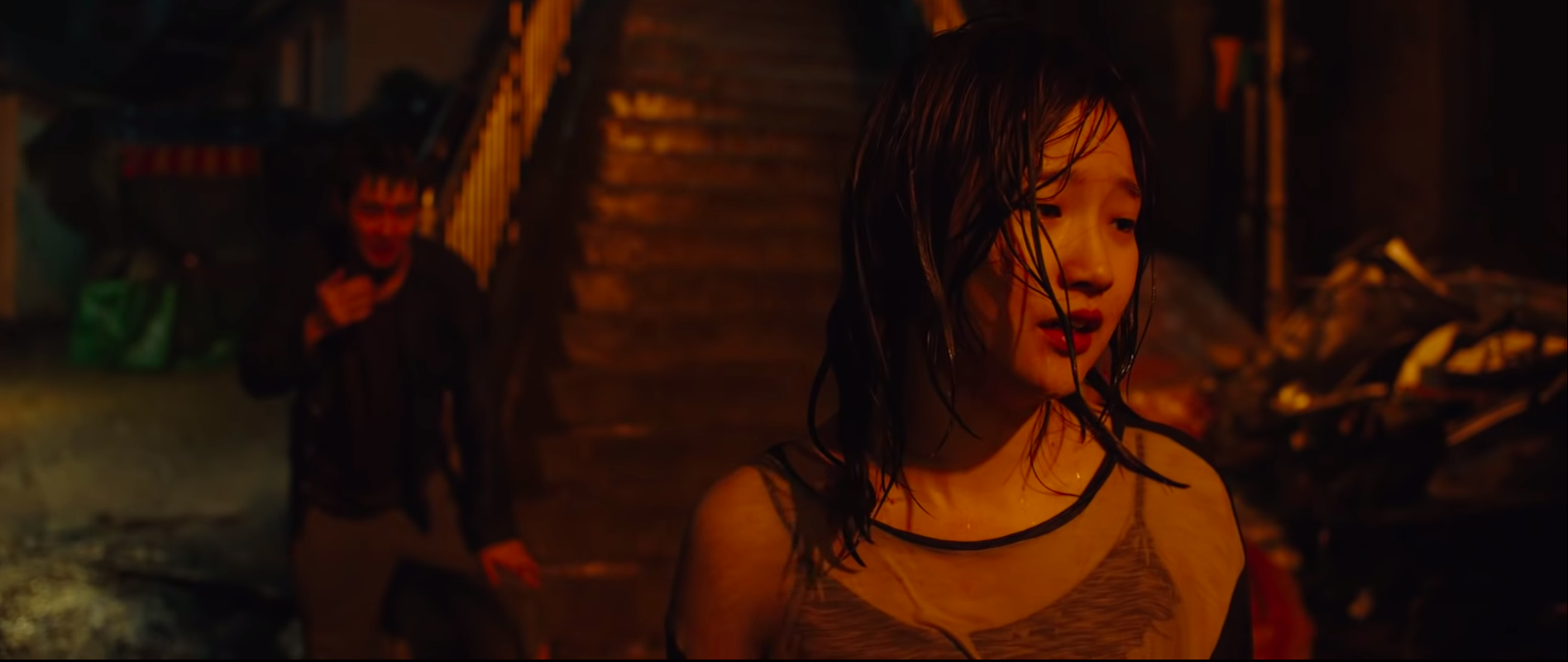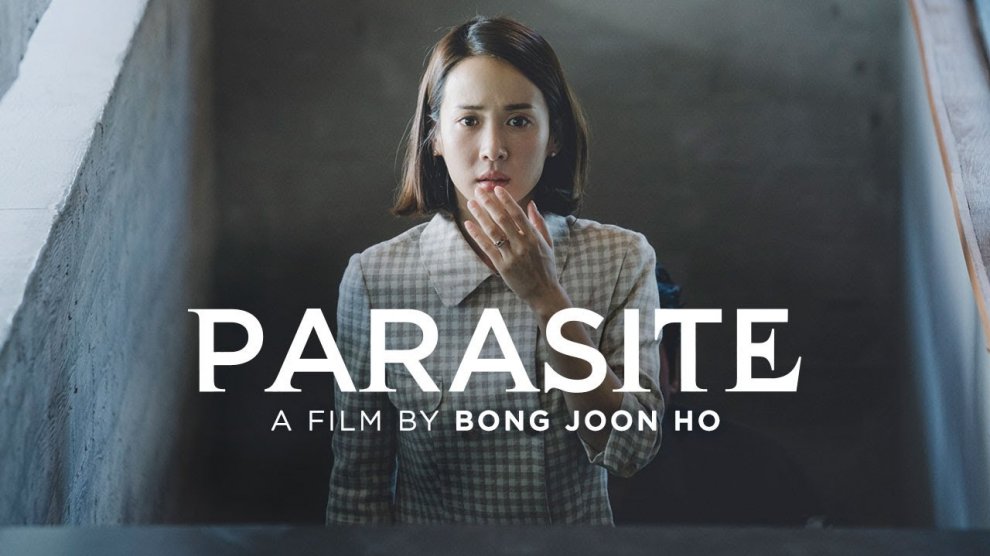-
Critic's Rating - 10/1010/10
Parasite boasts of such narrative and thematic complexities that it would be criminal to truncate its expanse of ideas and limit its identity to a genre or a one-liner. On the surface, the most significant and obvious theme it explores is that of class divide. It juxtaposes the lives of two Korean families, one that is living a life that is crammed by lack of space but is free to hope for a better living. On the other hand, a family that has a lot more wealth than they need, lives in a palatial house but are emotionally and mentally congested. Kim family that lives in a smelly semi-basement apartment chances upon an aristocratic family with a great financial luxury and a greater sense of fear and vulnerability. It is this vulnerability that is exploited, by Kim family that invades their house by masquerading as teachers, servant and driver, by staging a proper heist like situation. The director and editor make a conscious choice of editing these montages of each family member entering the house as a well executed Heist.

Bong Joon-Ho the director and writer of this masterpiece uses the concept of class discrimination as a base to a much deeper and profound film. A lesser film-maker would have satiated his/her cinematic hunger by exploring this juxtaposition of the two exteme classes in the society. The first half of the movie plays out like a hilarious heist movie that sheds an unbiased light of social consciousness on our worn out outlook towards the class difference in the society. The film fiddles with the universal idea of empathy and you catch yourself empathizing with the privileged although you see the story from the murky, deprived perspective of the poor. Bong Joon-Ho packs the film with numerous themes and fully realizes each of them, blending them all into the throbbing narrative of the film, seamlessly.

Bong Joon-Ho does not pull his punches in commenting on the political climate of the Korean countries and their leaders. A house help, woman in her 40s who goes to unimaginable lengths to keep her husband alive, mimics a North Korean news anchor talking about denuclearization and this stinging positioning of deprivation and denuclearization hits your gut as you question the priorities of the world we live in. In one of many incredible scenes in the film, the Kim family savours the luxury of fancy wine and a stunning view from the glass door, of rain pouring, as they indulge themselves in a party when the Park family has gone on a vacation. The father, Mr. Kim mentions about the gullible nature of their employers despite being rich, to which his wife responds ” She is nice, because she is rich. ” Money is Iron, it irons out all the crumples in a person “. This long scene reaches its climax with a simmering sense of inevitability, as you get a hold of the tone and themes of the film, the screenplay takes a sharp turn that plunges you into a pulsating ride of eclectic brilliance. Every time your supposedly astute cinematic sense settles in on the tone or genre of the film, the writers drop a bombshell of unexpected brilliance that stears your empathy and understanding in a totally different stream. This breathtaking dynamism in the screenplay thrives on the gasps of shock by the audience.

Among the numerous metaphors in the film, the most fascinating is Ghost being a metaphor for poverty, the existence of which, is only a myth to the rich. Although it is right below them, they have harboured it unknowingly as they went blind in the quest of earning a fortune. The most obvious of them are the staircases and the basements. In a stunning sequence, we take a tour of the town on a rainy evening and as the camera moves to the fervourous escape of the Kim family into their neighborhood, which is, geographically a low-lying area and there are staircases to go down to the area where Kim’s family lives. The house of the Park’s itself has several staircase and one in particular that goes to the basement plays a crucial role in communicating the point of the writers, across.

Bong Joon-Ho has managed to produce several masterful films within this film. The film is a delicious assortment of astounding genre shifts. A masterfully edited heist-like sequence is shot edgily in contrast to a very measured framing and camera movement in the rest of the film. The director uses different brushes to paint each theme of the film. The music, the camera, the editing pattern and the acting are never consistent through the film, but this deliberate inconsistency lends to the unpredictable brilliance of this masterpiece. The exquisite writing prowess at display traverses genres with ease and not once the breakneck speed in the shift of tone or genre feels jarring. This genre-shifting genius aside, the script of Parasite is a piece that is worth dissecting for ages. The tiniest of details that are planted, nonchalantly in the first half of the film, comeback in the later parts, to create a significant impact to the lives of the characters and the film. The incessant rainfall in the background stops being a mood creating technique after a point and affects the screenplay in ways that are unimaginable. The stench of the basement that comes from the members of the Kim family is mentioned in passing moments but later on, in a moment of madness, this harmless mention of the stench converts the madness into a massacre. These moments of extreme shock get their impetus from the already laid seeds in the early parts of the film. Witnessing these seemingly random instances amplified into life altering moments, fills you with a profound sense of appreciation for the incredible script, into which, these narrative intricacies are woven.

The use of staircases as a motif to represent the difference in strata, geographically is a testament to the luminous understanding of the art of cinema and an expert dissection of a society. A long tour of the flooded town in the night, we see the Kim family descend the multiple staircases into their hellhole that has let in a flood of sevage and misfortune, as they climbed down from the untouched high lying part of the town, where the Parks live. Parasite climbs the steps of cinematic brilliance to achieve the rare feet of registering as a masterpiece that employs the craft of cinema to make powerful social commentary but, incredibly, leaves an after taste of a taut thriller. For a movie that is titled Parasite, the movie settles within you like a Parasite but it, inversely, does not benefit from you and rather feeds you with ideas to contemplate about, long after the lights come back on. This fascinating paradox is the Director Bong Joon-Ho’s most significant achievement and not even the coveted and inevitable Academy Award victory can match it.















Add Comment